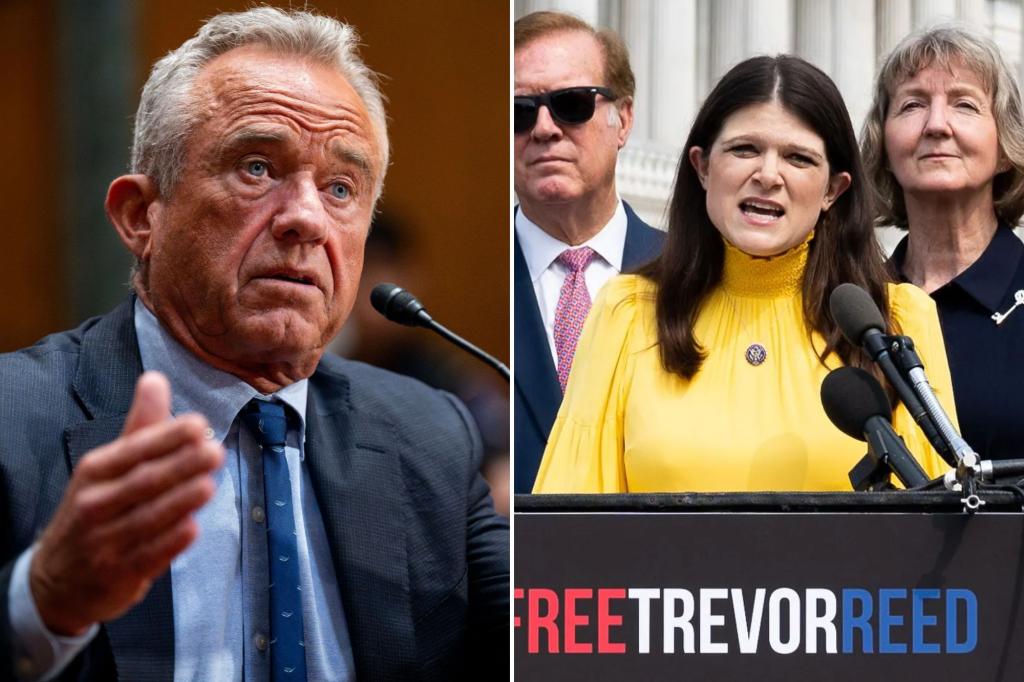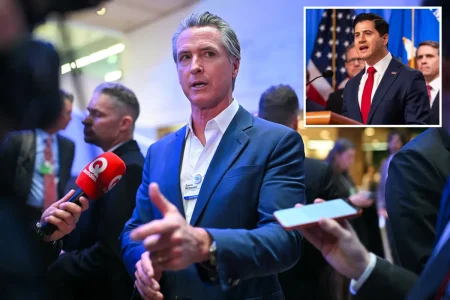Rep. Stevens Moves to Impeach HHS Secretary Kennedy, Citing Science Concerns
In a bold political move that highlights the growing tensions between traditional public health approaches and the current administration’s policies, Representative Haley Stevens of Michigan announced Thursday her intention to draft articles of impeachment against Health and Human Services Secretary Robert F. Kennedy Jr. This dramatic step reflects deep concerns about the direction of America’s public health infrastructure under Kennedy’s leadership. Stevens, a Democrat representing Michigan’s 11th district, has characterized Kennedy as “unfit to serve,” citing what she describes as his “contempt for science” and “constant spreading of conspiracy theories.” The congresswoman expressed particular alarm about the potential impact on her constituents, stating that Kennedy is “making healthcare less affordable and accessible for Michiganders” through his policy decisions and public statements that often contradict established medical consensus.
The planned impeachment articles will address several specific concerns about Kennedy’s leadership at HHS, which Stevens views as undermining the department’s core mission of protecting public health. Chief among these concerns are Kennedy’s decisions to reduce funding for medical research—which Stevens categorizes as an “abdication of duty”—and what she characterizes as his failure to properly administer the Food and Drug Administration (FDA) and Centers for Disease Control and Prevention (CDC). The complete replacement of the CDC’s vaccine advisory panel has particularly alarmed public health experts and lawmakers who see this as politicizing an agency that has traditionally operated based on scientific evidence rather than political considerations. This move represents a significant departure from Kennedy’s confirmation hearing testimony, during which he reportedly assured Senate HELP Committee Chairman Bill Cassidy that he would maintain the advisory panel “without changes”—a promise Stevens now claims was broken.
Kennedy’s approach to vaccine policy forms a central component of Stevens’ impeachment case. The HHS Secretary has withdrawn federal recommendations for COVID-19 vaccinations for pregnant women and healthy children, decisions that break with previous public health guidance. He has also canceled research related to mRNA vaccine technology, which many scientists consider a breakthrough platform with applications beyond COVID-19. Stevens argues these actions are “putting lives in danger and raising healthcare costs” by limiting access to preventative care that could avoid more expensive treatments later. The representative’s concerns extend beyond vaccine policy to other public health matters, including Kennedy’s recent White House statements suggesting a link between acetaminophen (the active ingredient in Tylenol) and autism—claims that Stevens characterizes as “wild and unfounded” and potentially aimed at restricting access to common pain relievers.
This impeachment effort reflects broader tensions in American society over trust in scientific institutions and expertise. Kennedy, who gained prominence as an environmental lawyer before becoming known for his skepticism toward certain vaccines, represents a significant departure from previous HHS secretaries of both parties who generally adhered to mainstream medical consensus. His appointment was controversial from the start, with many public health experts expressing concern about his history of challenging vaccination policies and questioning established medical practices. Stevens’ move to impeach Kennedy frames the conflict not as a partisan issue but as a matter of scientific integrity and public safety, arguing that “Congress must act to hold him accountable” for decisions that she believes undermine the health department’s fundamental mission.
The timing of this impeachment announcement comes amid growing concerns about public health infrastructure and preparedness. With pandemic-era health measures largely dismantled and public health agencies undergoing significant leadership changes, many health policy experts have expressed worry about America’s readiness to respond to future health threats. Kennedy’s leadership style has represented a sharp pivot from traditional approaches to public health management, with greater emphasis on individual choice and skepticism toward interventions like mass vaccination campaigns. This philosophical shift has energized supporters who believe government health agencies had overreached in recent years, while alarming others who see evidence-based public health measures as essential protections, particularly for vulnerable populations.
The path forward for Stevens’ impeachment effort remains uncertain, as successful impeachment of a Cabinet secretary would require majority support in the House of Representatives and a two-thirds vote in the Senate. While the congresswoman has pledged to “lead the charge” for Kennedy’s removal, the political dynamics will ultimately determine whether this effort gains traction or remains primarily symbolic. What is clear, however, is that this move has brought the simmering tensions over America’s public health direction into sharper focus. The debate touches on fundamental questions about the role of government in health care, the authority of scientific consensus, and the balance between individual liberty and collective wellbeing—issues that transcend traditional partisan divides and speak to how Americans view expertise and evidence in an increasingly polarized information environment.










